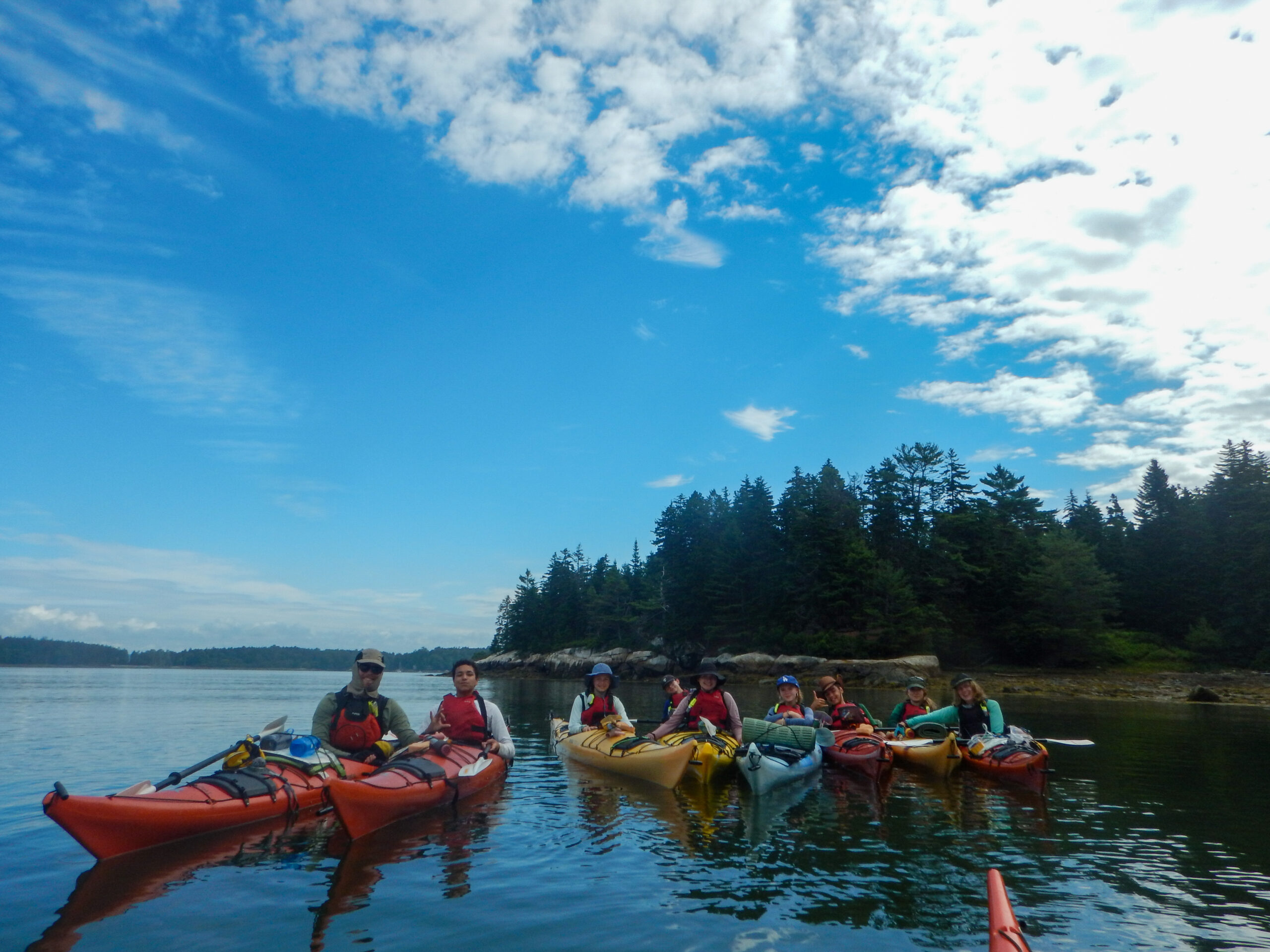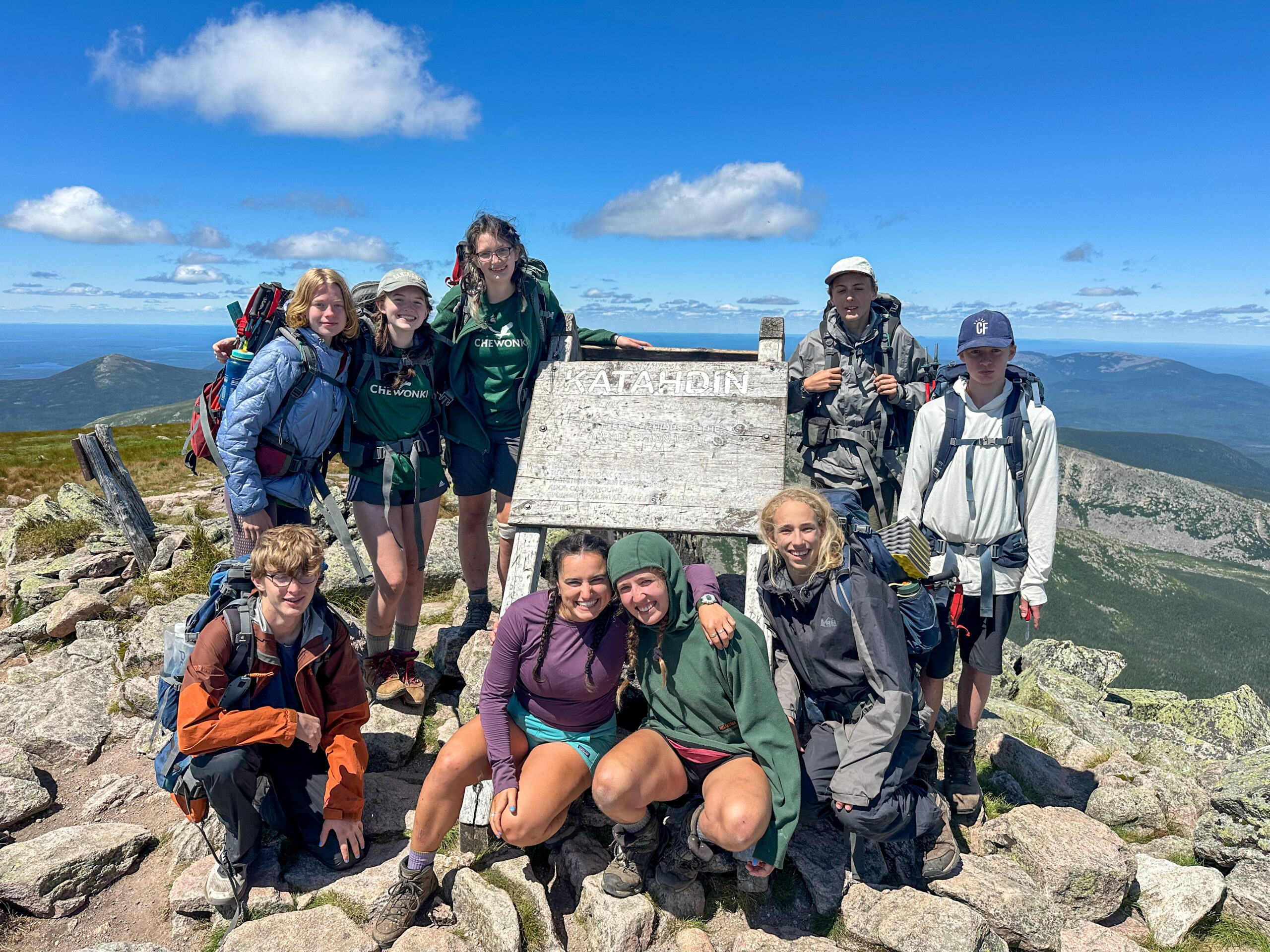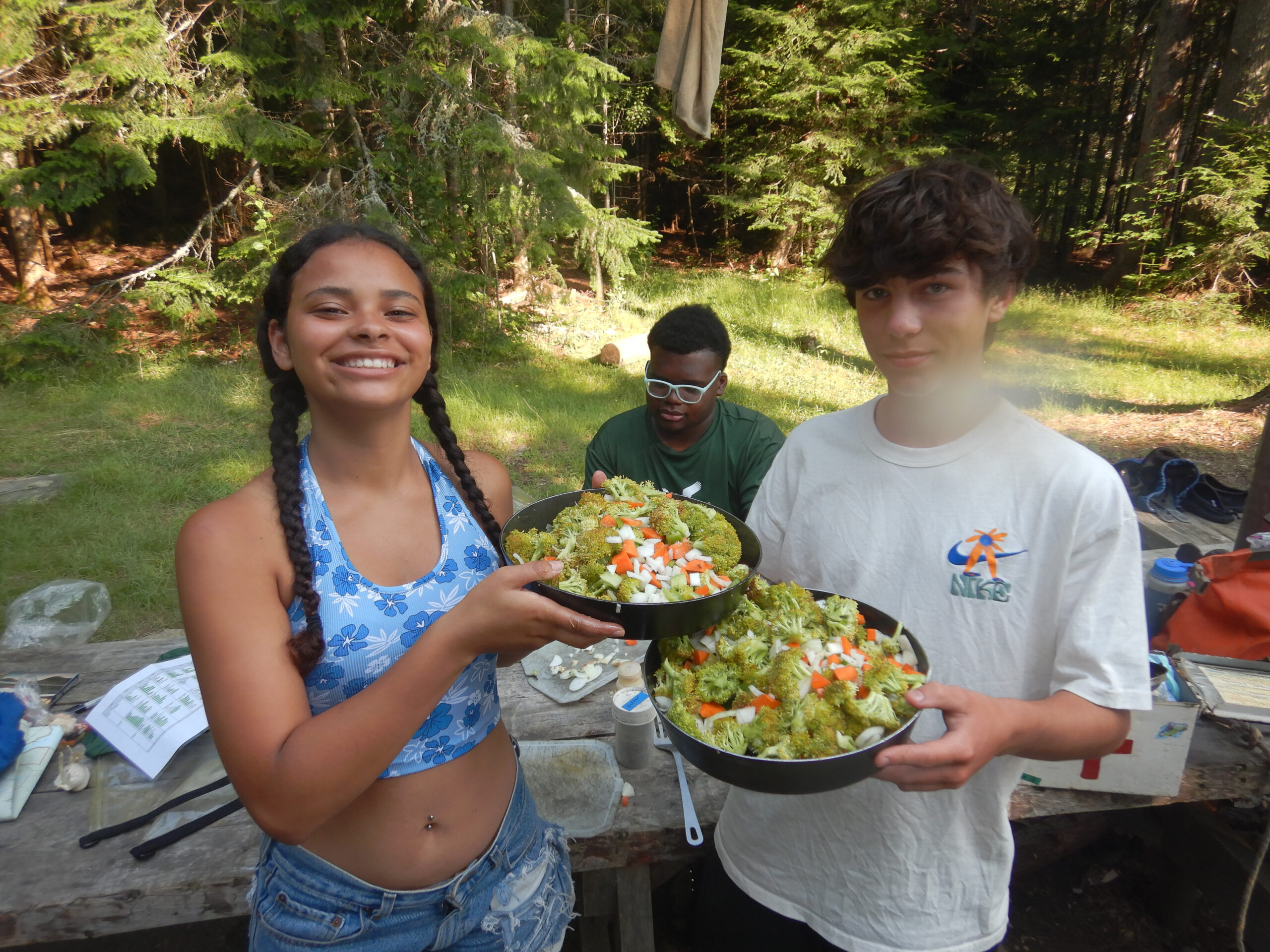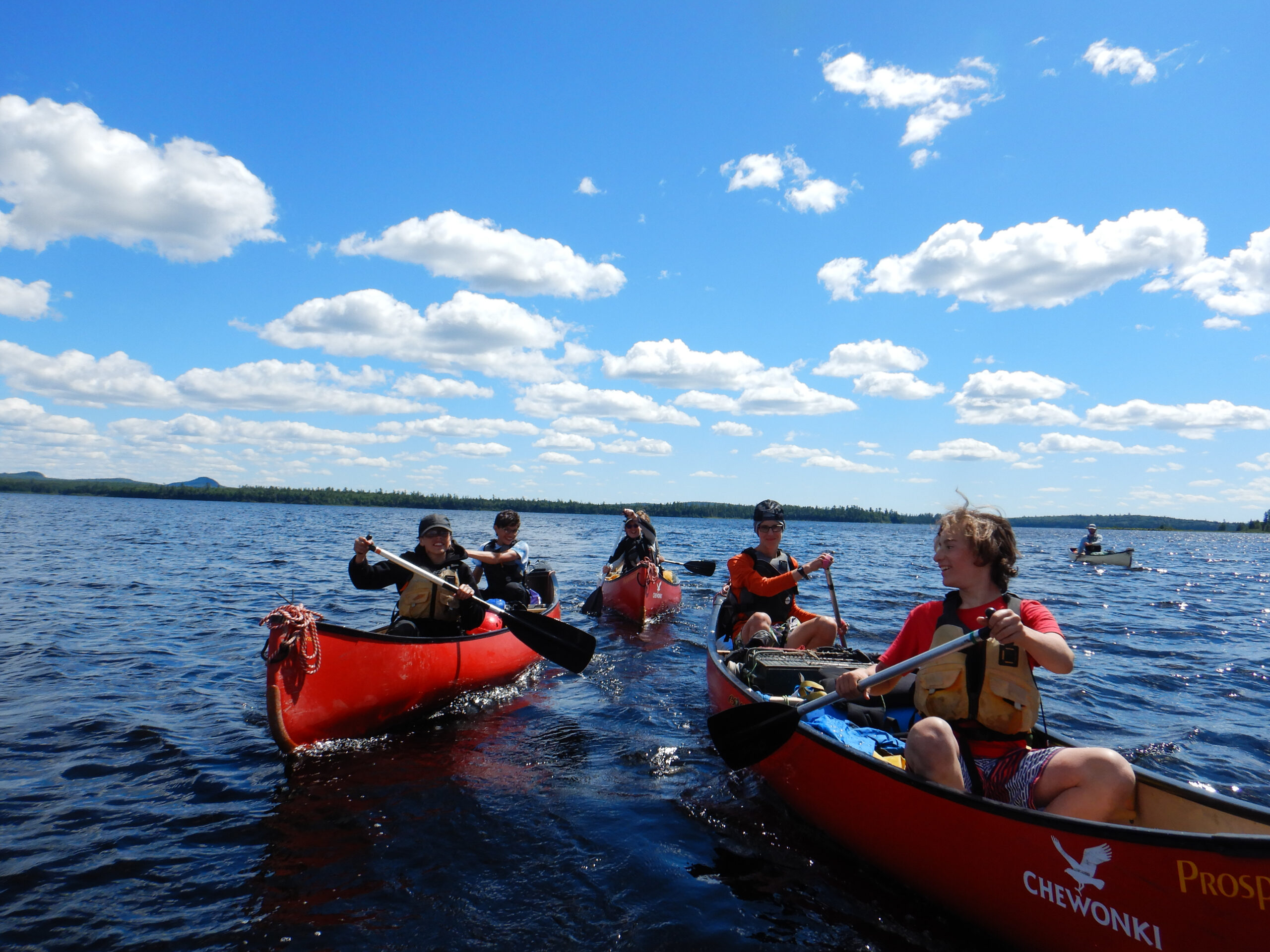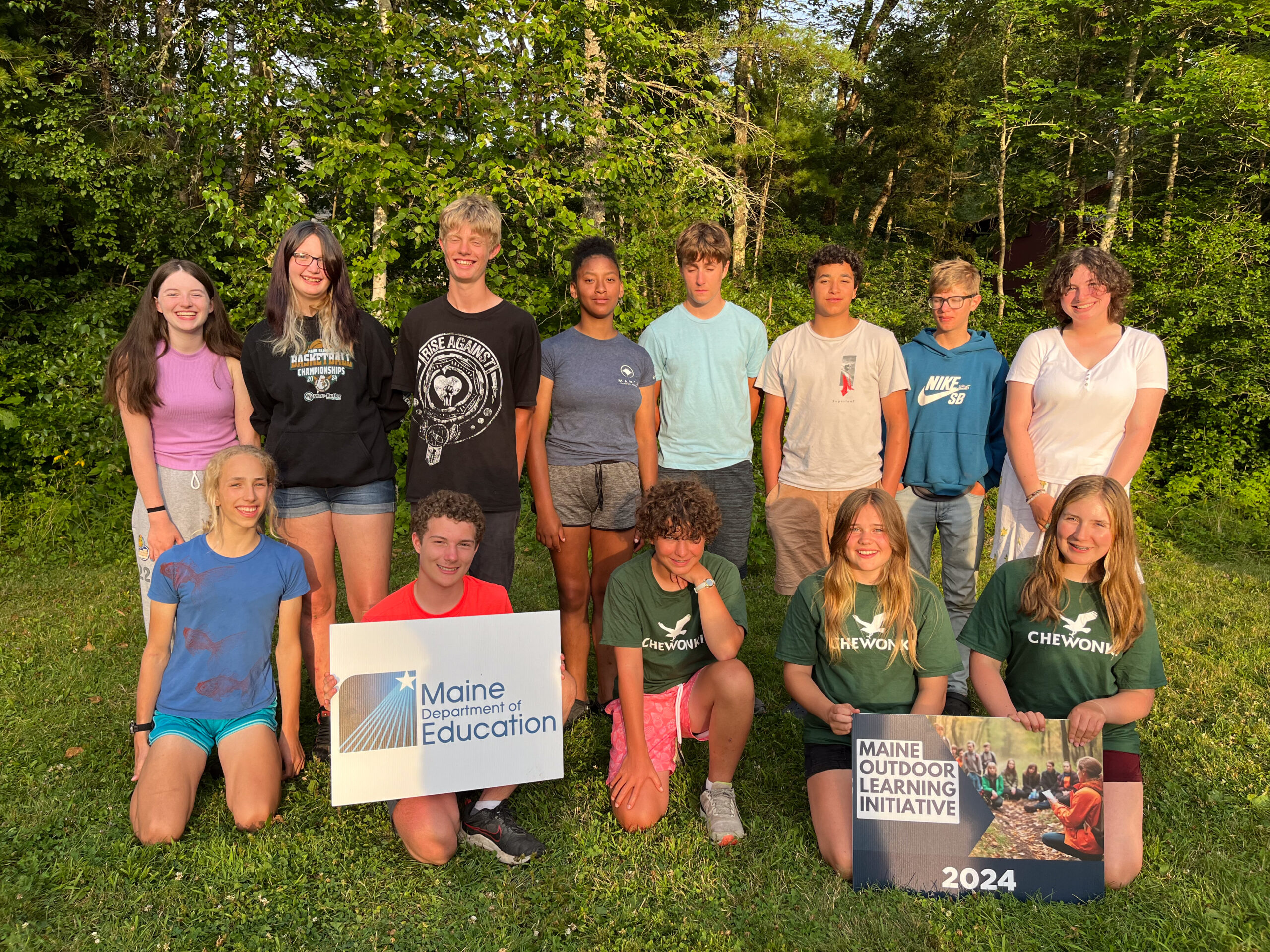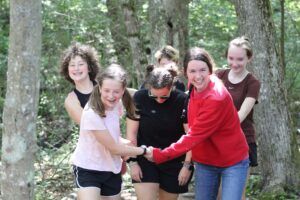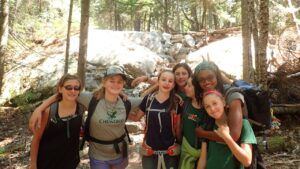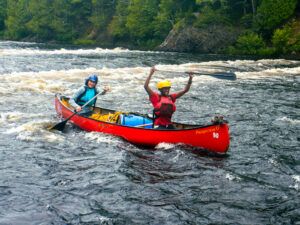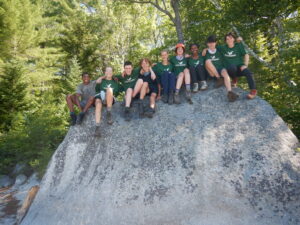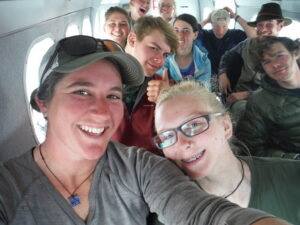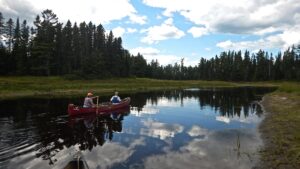Wiscasset, Maine. As students returned to school last week, organizations large and small across Maine breathed a happy, yet tired, sigh of relief as they wrapped up their summer programs for the year, reflecting on the outcomes for students and staff.
One group of programs in particular has a lot to consider: the sixty-six non-profit organizations across the state that participated in Governor Mills’ “Maine Outdoor Learning Initiative,” a dedicated effort to increase student access to hands-on outdoor learning experiences and career exploration. Thanks to grant funding provided by the American Rescue Plan Act, more than 4,000 Maine students were able to participate in a wide variety of outdoor learning experiences between May and September.
Chewonki, an environmental education organization based in Wiscasset participated in the initiative and was home to fifty Maine students in grades 8-12, arriving from thirty-nine different towns to embark on two-week camping trips by canoe, sea kayak, or on foot.
“It’s not like it looks on Instagram,” says Jen Adams, Director of Outdoor Programs. “On a two-week backcountry experience there’s always a transformative or “Ah-ha!” moment as the participant goes from thinking this will be easy, and then it gets difficult, and then they learn how to dig deep into their physical and emotional reserves, and they come away with something really special- a belief they can work with a team and overcome challenges.”
On the surface, our programming is straightforward,” says Adams. “It spans 2-5 weeks of exploring Maine’s amazing trails and waterways, building outdoor living skills, and learning about nature and stewardship. “But it’s ultimately about community, and learning what it means to forge those social skills to live with ten other people for twenty-four hours a day for two weeks, where you can’t just quit or walk away.”
According to Adams, a key benefit of the experience is learning to communicate and work together with groups of strangers- a valuable life skill in education, the workforce, and beyond. “On these trips… of course, they have to get to certain places on a schedule, but that’s not really the point,” says Adams. “Students arrive from very different households and families, different incomes, different identities, and ideas, and we have to find ways to jam all of these people in a group and make it an inclusive and welcoming place to be.”
Adams describes the practice of building a group “community agreement” at the beginning, symbolized by a string of self-designed flags that the students carry with them and display at each campsite along their journey. “It’s facilitated by the trip leaders who brainstorm with the group, asking questions like, ‘What do we want to be part of our community?’ and ‘What don’t we want in our community?’ We then combine all the different ideas to find the best way to express them, whether through pictures or in writing.”
Alongside the skill development of learning to handle watercraft, navigate from maps, outdoor cooking, and camping, students gain instruction and often excitement around Leave-no-trace camping ethics discovering just how many public camping and recreation spaces are available to them in Maine.
“A term we use a lot is “a sense of place,” meaning the way the student understands their relationship to the place they’re in, but also understanding all the complex interactions between natural systems, human systems, and the responsibility we have to steward both,” says Adams. “With students who don’t have a lot of outdoor experience, we have to start by getting them excited on the social-emotional level about being out in nature and feeling confident in their skills, then we can engage them at the educational level so they start to understand the ecosystems they’re traveling through, and that often leads to an enduring passion to protect and steward the natural world.”
Adams describes the delight the trip leaders feel as the teens start to take pride in leaving a campsite better than they found it, “…picking up little bits of carrot, or having intense discussions about how food scraps impact the wildlife. It can be difficult for people to get excited about conservation “in general” but once you have a favorite river, or trail, or beach, or campsite, it becomes something you care about your whole life, and come to share the love of that place with others you may never meet.”
The Chewonki trip leaders have also commented on how excited they were to work with these local Maine students. “I’ve never had such an enthusiastic group of students paddle down the Allagash River,” said Jed Breen, a Chewonki Trip Leader. “Each and every one of them wanted to be here, and it showed.”
Chewonki staff have turned their sights toward the next season, looking for the next step to keep these students engaged with outdoor recreation and education. “We deeply appreciate Governor Mills and the Maine Department of Education for making this programming possible,” says Chewonki president, Nancy Kennedy. “We’re encouraging all the students who came to a summer program through the Maine Outdoor Learning Initiative to keep going! There are excellent school-year organizations and clubs where students can take what they’ve learned this year and continue to build on it.”
“Once you realize all that Maine has to offer- for everyone- you’ll never want to turn back,” says Kennedy. “The outdoors is for everyone.”
